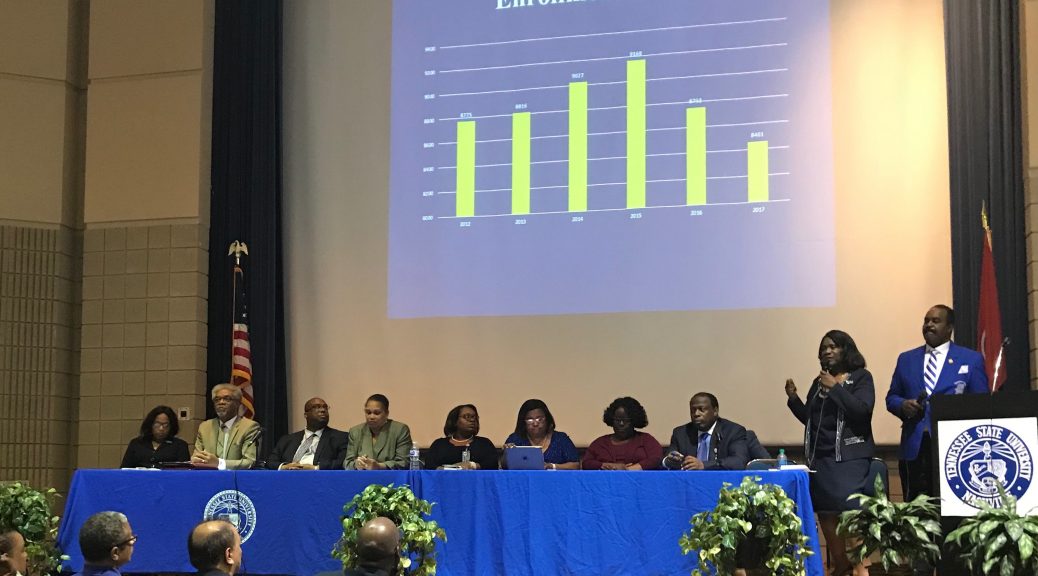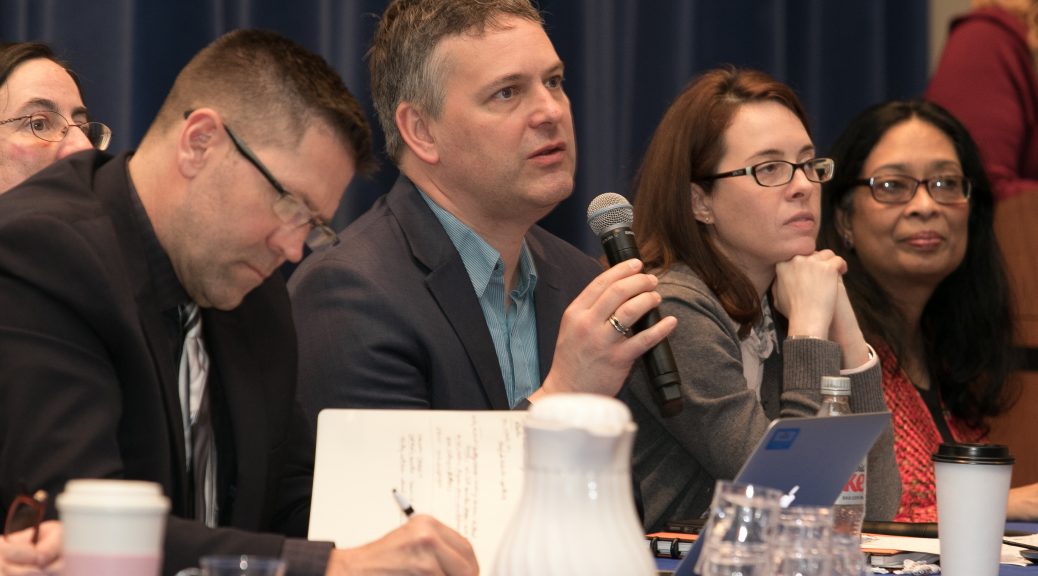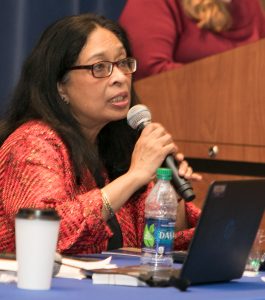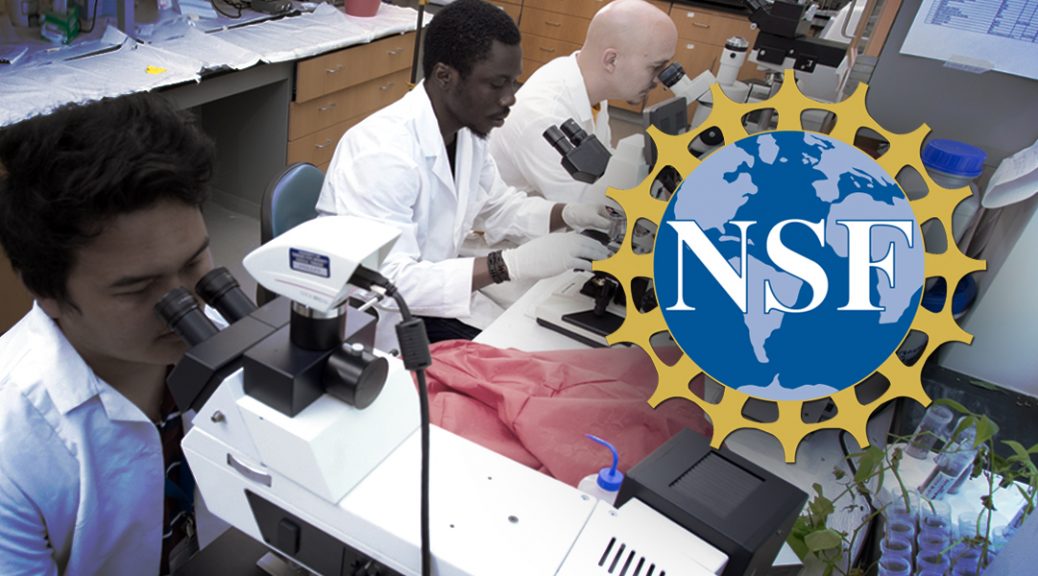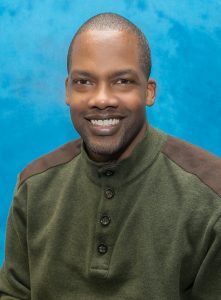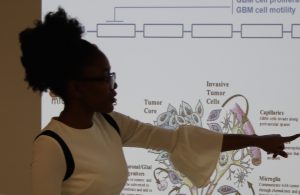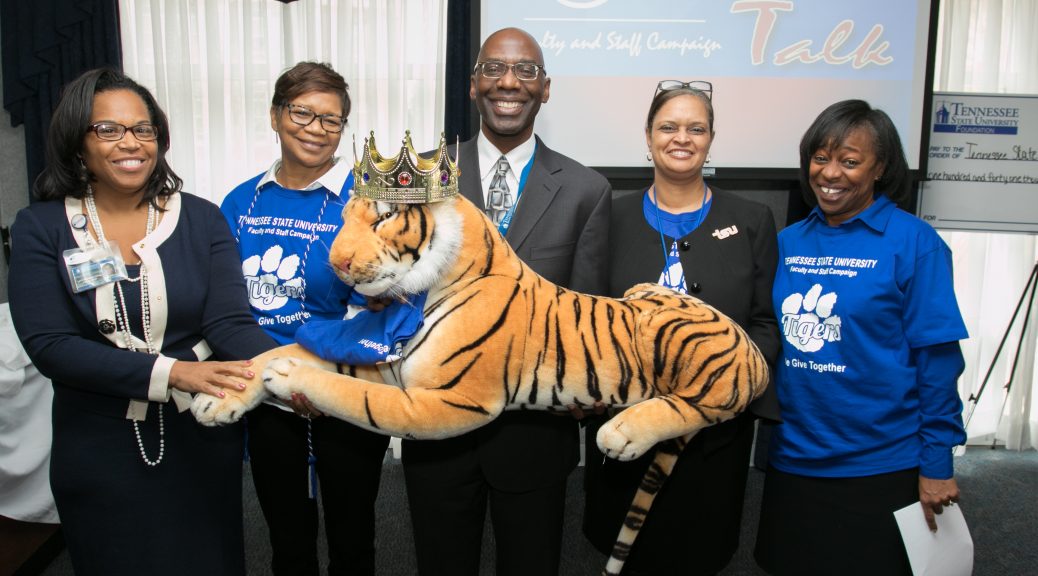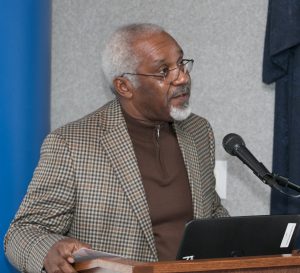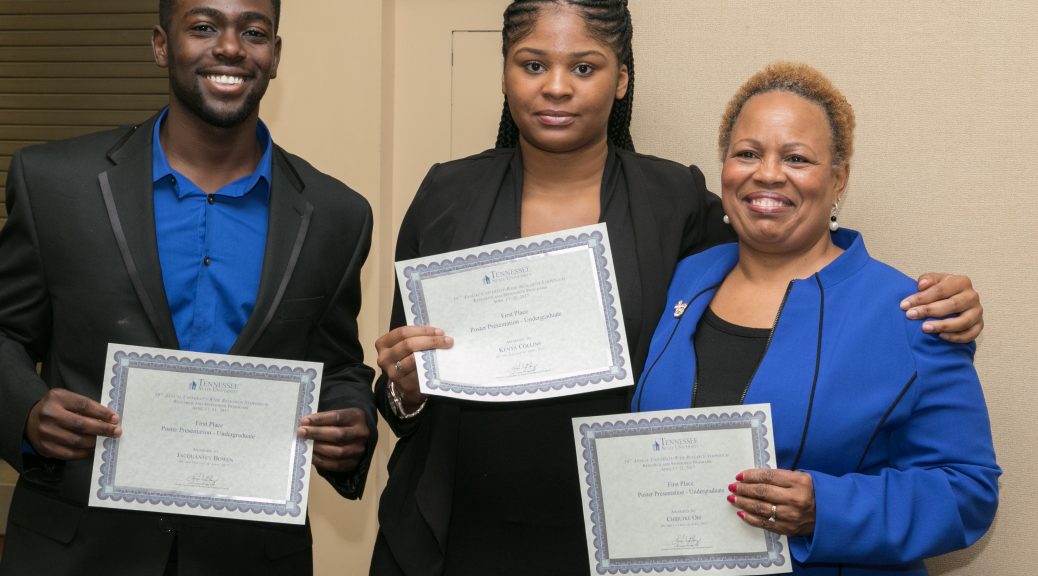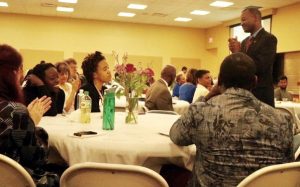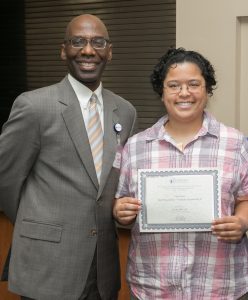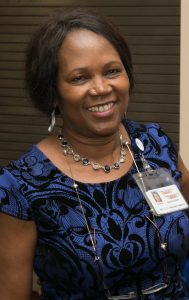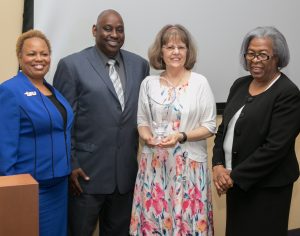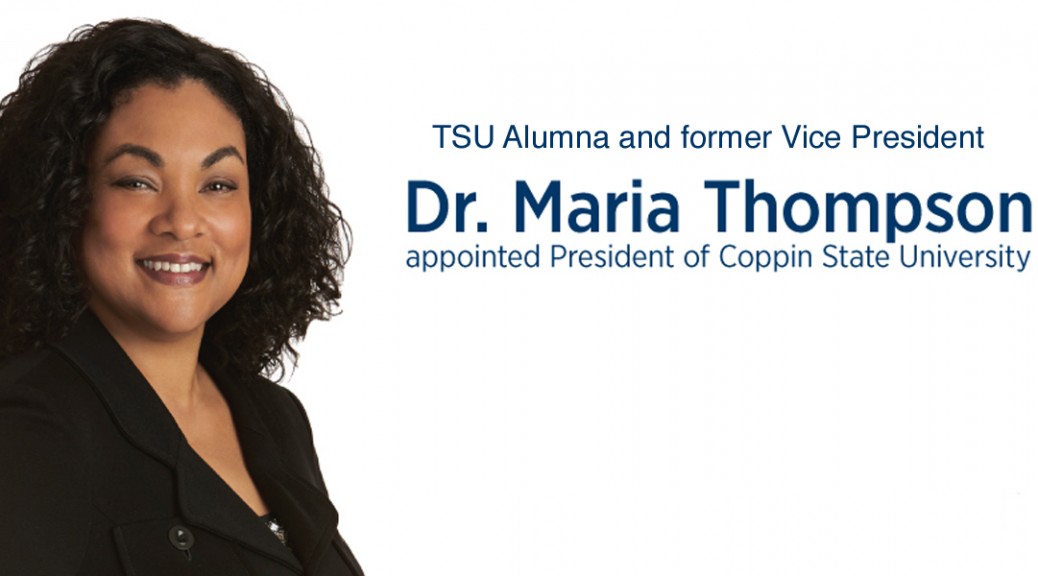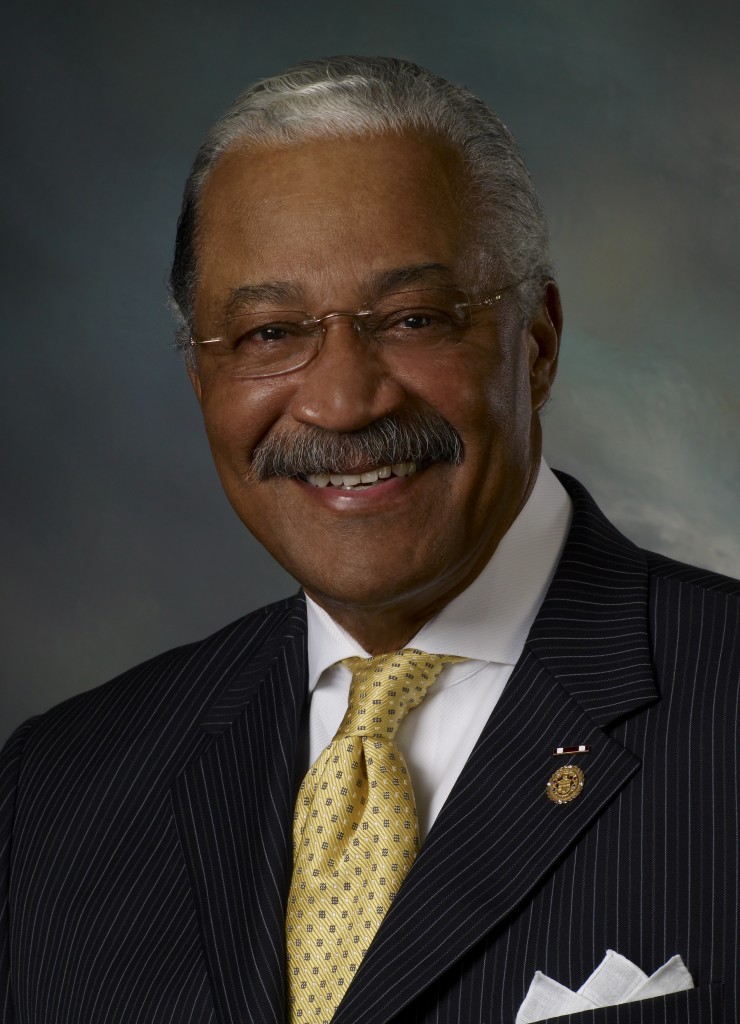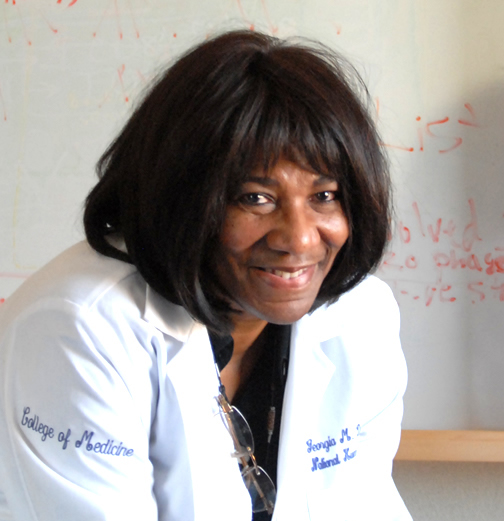NASHVILLE, Tenn. (TSU News Service) – A presentation by Tennessee State University President Glenda Glover was the only agenda item for the Nashville Alumni Chapter meeting held Tuesday night in the Floyd-Payne Campus Center in the Robert N. Murrell Forum.
The meeting, which lasted a little over two hours, was led by TSU Nashville Alumni Chapter President Dwight Beard.
“We have to support Dr. Glover. She has made it clear where she is trying to take the institution,” said Beard, a 1974 TSU alum. “We as the alumni have to love and support TSU, get involved with the activities, mentor our students and give back to the institution.”
Beard said TSU alums across the nation need to “support the president by motivating students to come to TSU, and not only TSU, but all HBCUs.”
After a brief introduction by Beard, Glover updated local alumni on advancements the university has made in the areas of retention recruitment, enrollment, and marketing.
A little over 100 attendees listened attentively as Glover enthusiastically recounted her personal involvement in recruiting two of Memphis’ top high school seniors, Meaghen Jones and Jayla Woods, whose combined scholarship awards equal close to $19 million.
Glover informed attendees about upcoming changes to the campus landscape, including the addition of a new Health Sciences Building, two new residence halls, the Field Research Organic Laboratory, the Gateway Arch Entrance, a new engineering building and the Alumni House and Welcome Center.
Alumni also learned about a half million dollar gift from the family of the late Dr. Levi Watkins, Jr., that will be used to establish an endowed scholarship fund in honor of the TSU alumnus and renown heart surgeon.
Following the president’s presentation, members of the audience were given an opportunity to ask questions and share their ideas and concerns.
“The meeting was great. It was an awesome way of updating the alumni regarding the efforts of President Glover and her team to make Tennessee State University the best that it can be,” said Vivian Wilhoite, a 1987 alumnae of TSU who serves as the Property Assessor for Davidson County.
Wilhoite said she was impressed by what the president is doing to move the university forward.
“It was just wonderful. It says that we have a vision. It says that the president has a plan. It says that President Glover is saying, ‘Hey. Join us. We need you. We appreciate all who have been involved, but we want to reignite the spirit of those people who haven’t been involved by letting them know we have been doing those things you have expected of us to grow our great university.’”
Department of Media Relations
Tennessee State University
3500 John Merritt Boulevard
Nashville, Tennessee 37209
615.963.5331
About Tennessee State University
With more than 8,000 students, Tennessee State University is Nashville’s only public university, and is a comprehensive, urban, co-educational, land-grant university offering 38 bachelor’s degree programs, 25 master’s degree programs and seven doctoral degrees. TSU has earned a top 20 ranking for Historically Black Colleges and Universities according to U.S. News and World Report, and rated as one of the top universities in the country by Washington Monthly for social mobility, research and community service. Founded in 1912, Tennessee State University celebrated 100 years in Nashville during 2012. Visit the University online at tnstate.edu.
